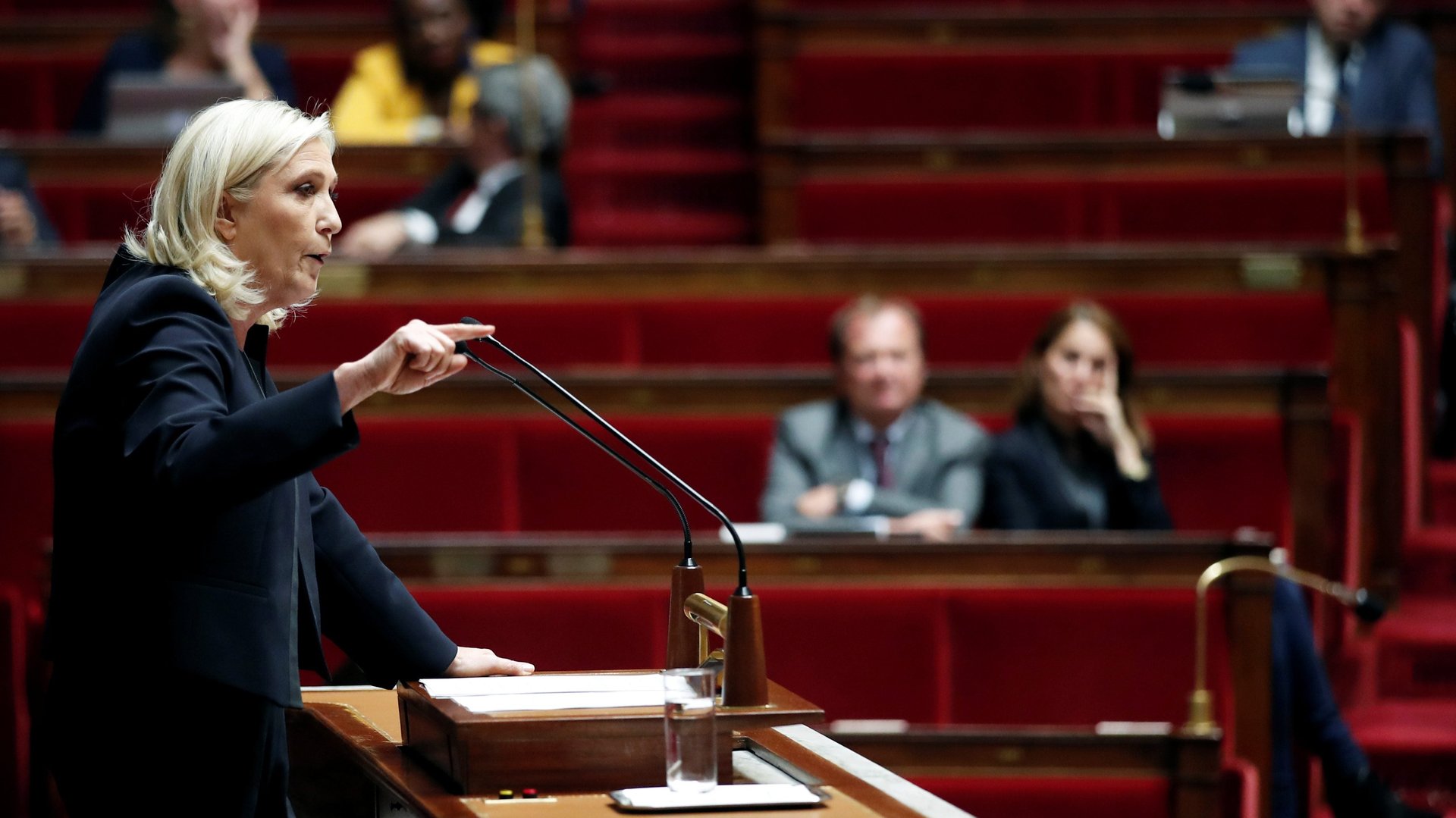How Europe’s far-right is talking about the US insurrection
Viewed from abroad, the downfall of Donald Trump’s administration has appeared as relentless as its rise. In the past few months, the president and his supporters have done little but collect defeat and crises.


Viewed from abroad, the downfall of Donald Trump’s administration has appeared as relentless as its rise. In the past few months, the president and his supporters have done little but collect defeat and crises.
Operation Warp speed was able to help get a Covid-19 vaccine faster than even the most optimistic experts had predicted, but the administration’s unwillingness to put forth strong measures to control the epidemic resulted in 400,000 lost lives in the US, and even an outbreak in the White House. The Republican party lost the presidential election by the largest margin of the popular vote in history, then months later lost the Senate majority after an unprecedented loss of two seats in Georgia. The baseless claims that the election was fraudulent were overwhelmingly rejected in the courts, and the only outcome of the attempts to block the election’s certification was the insurrection that cost Trump accusations of treason, his Twitter account, and a second impeachment.
Trump’s downfall will have many casualties. Among the impacted, however indirectly, are the right-wing parties of Europe, which had been galvanized by Trump’s ascent and found inspiration in his populist, xenophobic approach.
From Italy’s Matteo Salvini and Giorgia Meloni, respectively the leaders of far-right Lega and Fratelli d’Italia, to Marine Le Pen, leader of Rassemblement National in France, Trump’s European allies supported his position as he contested the election, expressing solidarity and doubts over their legitimacy.
Confronted with the violence generated by the refusal of accepting the election, however, they found themselves in a complicated position. On the one hand, their support of Trump has been too vocal, and their position too similar to his, to repudiate him completely. On the other, the spectacle of a violent mob breaking into the Capitol was hard to reconcile with their nationalistic, conservative platforms.
Reactions to the violence were swift across European far-right parties, which in many countries—including Italy, France, and Belgium—are leading the polls. But the condemnations were pretty similar, both in form and in content. “Violence is never the solution,” said Salvini. “Violence is violence, and it’s always an admission of inferiority,” said Meloni. “Any violent act that aims to disrupt the democratic process is inadmissible,” were Le Pen’s words. “Storming Capitol Hill is wrong,” said UKIP leader and Brexit architect Nigel Farage, and even Katalin Novák, a minister of Viktor Orbán’s far-right government in Hungary, called the images of the Capitol “shocking.”
But these largely similar statements don’t move past platitudes. Their critiques are vague and hardly directed at the mob of Trump’s hard-core supporters. The president typically isn’t mentioned in the same breath as the violence, unless it’s to take the same position he and his political allies have taken—that he, too condemned the riots.
In fact, Le Pen even painted Trump as a victim of a few extremists who had violated the law in his name, while over 70 million of his supporters respected the law and accepted, begrudgingly, an election result they didn’t believe.
In any event, right-wing parties don’t seem to have lost significant support because of what happened in Washington. Their leaders have been able to vocally support democracy while remaining somewhat loyal to an ally they still consider important. Italy’s Meloni said explicitly that it would be a mistake to condemn Trump—as center-right politicians had done—because he would continue to have enormous power and influence.
For Europe’s far-right, what happened in the Capitol wasn’t seen so much as a warning sign of things to come, but rather as an expression of a decline of America’s power and democratic reliability. That was a view held by a majority of Europeans even prior to the insurgence.